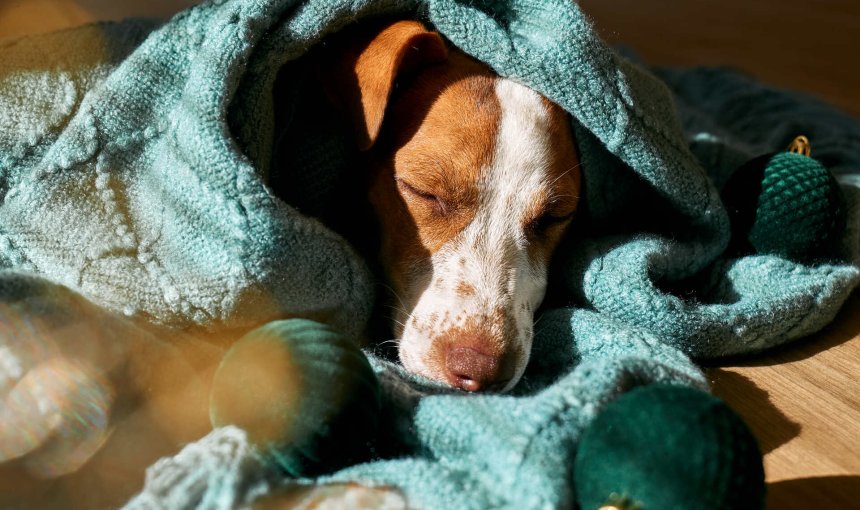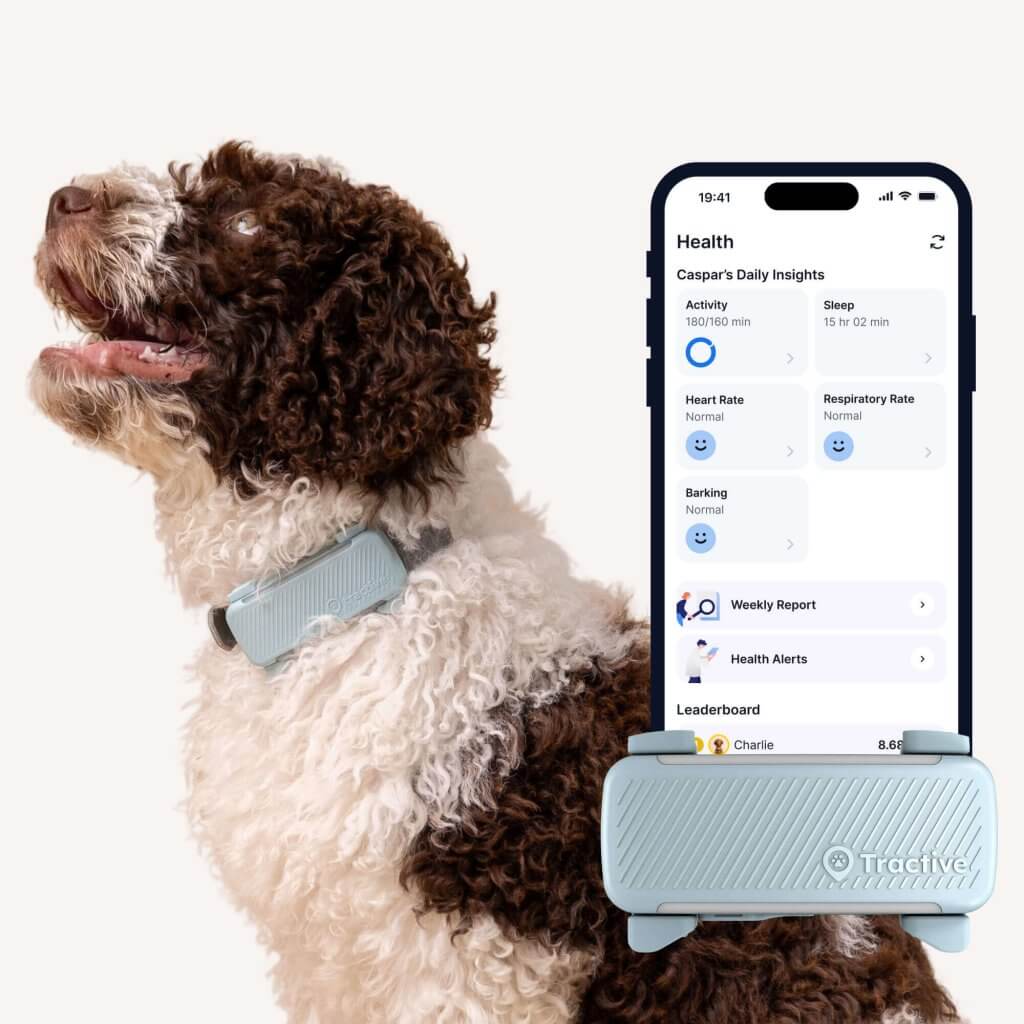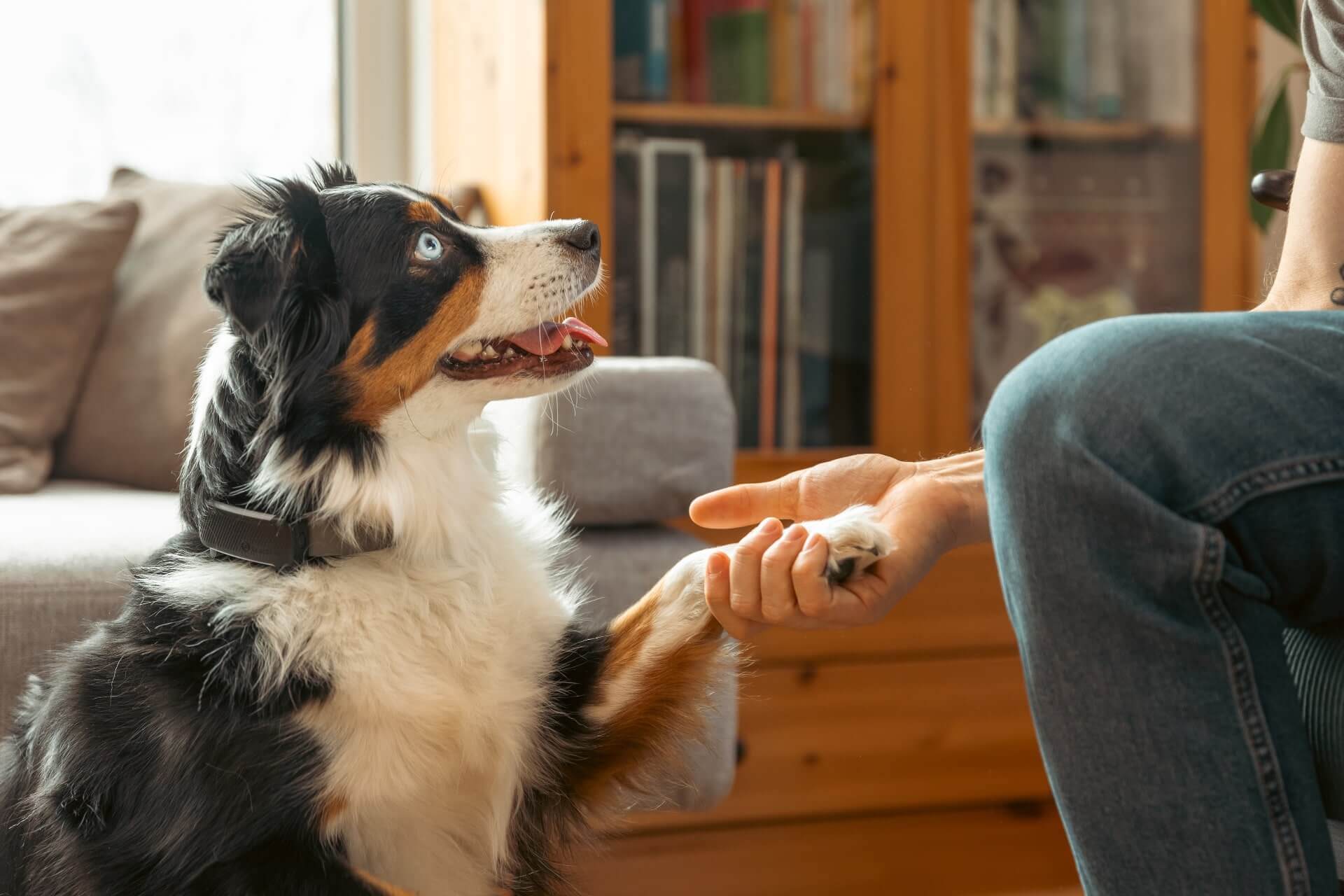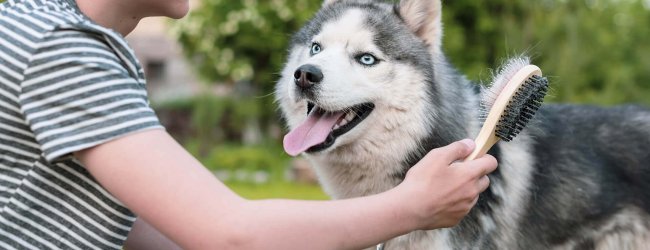Why Is My Dog Snoring? (And How To Deal?)
Here's why it happens and what steps you can take to manage it.

You might find it funny or cute, but dealing with a dog snoring can be a recipe for missed sleep. Here are all the reasons behind why dogs snore, whether it’s normal, and how you can catch on to a change in your dog’s breathing patterns with a smart tracker.
Key Takeaways
🐾 Snoring is usually caused by a blockage in your dog’s airways.
🐾 Common causes include foreign objects in your dog’s nose, allergies, sickness, or an uncomfortable sleeping position.
🐾 Head to your vet if your dog suddenly begins snoring – but also shows other signs of illness, like lethargy or disturbed sleep.
🐾 A smart dog tracker like Tractive can help you monitor your dog’s vital signs – including their breathing rate and even sleep quality. So you can catch on to a change early and get them over for a checkup in time.

Always know your buddy is healthy & safe
Read moreWhy do dogs snore?
A dog snoring usually has something blocking its airways during sleep. Friction between the air and what’s obstructing your dog’s breathing produces the snoring sound – which can sound like a whistle or rattle. In some cases, dogs snore when they’re in deep sleep and completely relaxed. But it can also depend on their general state of health. A snoring dog might also be experiencing:
- General breathing difficulties
Brachycephalic dog breeds (like Pugs, Bulldogs, and Boxers) tend to have shorter snouts and bigger heads. This may cause difficulties in breathing because of their anatomy. - An uncomfortable sleeping position
If your dog tends to sleep on their back or side, it may cause snoring. The tongue can fall backwards into their throat, narrowing their airways. Else, their head might be slightly overstretched. Snoring can also occur if your dog is lying on something pressing against its windpipe. - Obesity
An overweight dog has extra fat narrowing its airways, making breathing more difficult. Don’t skip out on your daily walks and exercise and keep your vet in the know. Here’s a quick guide on how much you should be feeding your dog, based on their age and activity level. - Growing into a senior dog
Who tend to experience a weakening of their connective tissues with age. (Just like us.) This also includes the connective tissues around their airways, leading to resistance while breathing. - Allergies
Inflammation in your dog’s nose or throat can narrow the airways and trigger snoring. - Foreign objects
Getting stuck in your dog’s nose, which is their primary way of exploring the world. This could happen when you’re out together or even if your dog is sleeping on the ground.
💡A smart dog tracker with Health Monitoring can help you pick up on a change in your dog’s breathing patterns – and also sleep quality. So you can catch on to a change quicker and get them over for a checkup before it worsens.

Get health alerts for your dog
Our pups can’t always tell us if something’s wrong. But if their tracker detects unusual changes in their routine, you’ll get an alert, helping you catch potential issues early.
My dog is snoring – when should I head to the vet?
Most of the time, a dog snoring isn’t cause for concern. But if you suspect an underlying health problem, don’t ignore it. Drop by your vet if you notice your dog suddenly, persistently snoring out of nowhere. It could be due to:
- A cold
- Allergies
- Respiratory diseases, including bronchitis
- Or even heart problems
Watch out for red flags like frequent sneezing, nasal discharge, coughing, watery eyes, noisy or heavy breathing, fatigue, or even fever – and head to your vet right away.
What you can do if your dog is snoring
A dog snoring might be unaware of the racket it’s making. It’s also likely to rob you of sleep at night. In this, case you could:
- Create a separate sleeping area for your dog
Ideally, one where you can’t hear them and where they’re comfortable. Air it out regularly to get rid of any airborne irritants or allergens. - Keep your dog at a healthy weight
It bears repeating, but do your best not to skip out on regular walks and playtime. Overweight dogs are more at risk for a host of weight-related health issues you’re better off avoiding. - (Very) gently nudge your dog while sleeping if snoring
Dogs usually shift around while sleeping by themselves. But if you do so, it can prompt them to change their sleeping position to one where they might not snore. - Put a pillow or cushion under your dog’s head
To elevate their airways and prevent blockage.
Finally, don’t skip out on your regular vet check-ups. Your vet can best help you understand what’s causing your dog to snore and what steps you can take to manage it.
What to expect at your vet if you have a snoring dog
If it’s severe or persistent or occurring out of nowhere, your vet can help you figure out the cause of your dog’s snoring. If it’s because of…
- A respiratory infection
Your vet can administer the right medication to combat it and alleviate the snoring. - A foreign body
Which might require your vet to remove it – or trigger your dog to sneeze so it’s removed naturally. - Anatomical problems
In these cases, your vet might recommend surgery. Especially if it’s due to narrowed nasal openings or an elongated soft palate.
How Tractive helps you monitor your dog’s health
Our dogs can’t always tell us how they’re feeling. They’re also experts at masking any signs of discomfort or pain – usually until they’ve gotten a lot worse. A smart dog tracker like Tractive helps you stay one step ahead. Strapped to your dog’s collar, here’s how it can help you monitor their health.

From your Tractive mobile app, you can now check whether your dog is:
- Sleeping well – or enough
With your tracker’s Health Monitoring features keeping track of your buddy’s sleep quality. A change in your dog’s sleep cycles is usually one of the first signs of cognitive decline. Or it could spell trouble, health-wise. - Breathing more heavily than usual
Your tracker also includes Vital Signs monitoring, for your dog’s breathing and heart rate. Once it’s gathered enough data, your tracker establishes a baseline for what’s normal for your dog. So you can catch on quicker if there’s a change – and get them over for a checkup right away. - Experiencing a potential health issue
If there’s a weird drop in your dog’s activity or a change in their sleep quality from their baseline, your tracker sends you a Health Alert. So you can head to your vet with data at hand and have a more productive conversation.
All this in one device – built with love for dogs and for your peace of mind as a dog parent.



